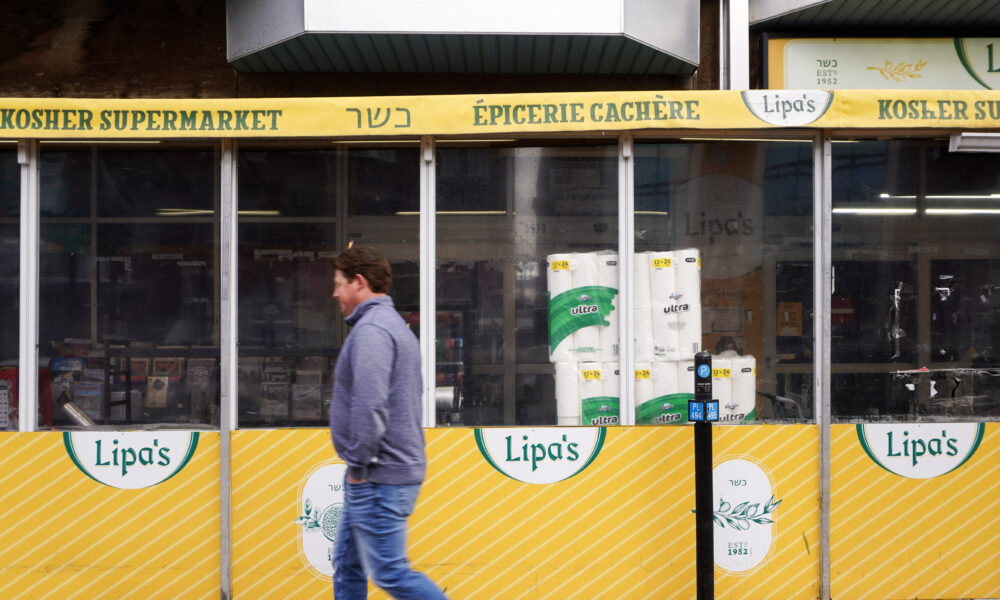In the Mile End, on av. du Parc just south of av St.-Viateur, lies Lipa’s Kosher Market. Lipa’s, established over 70 years ago, belongs to a dying breed of local grocers geared to the needs of their community: In Lipa’s case, the Montreal Hasidic Jewish community. However, this past August, Maxi, a discounted grocer subsidiary of Loblaws, opened a new location—one of thirteen new Maxis in the Greater Montreal Area—just a few doors down from Lipa’s.
Loblaws strategically opens its chains, which also include Provigo, T&T, and Pharmaprix, in the vicinity of local independent grocers to assert its monopoly in the grocery market. This attempted sabotage of Lipa’s is only the beginning, and the Canadian Competition Bureau must take action before Loblaws’ monopolies run independent grocers out of business. Small business grocers are the heartbeats of communities and should be protected from predatory operations by industry giants.
Maxi is what is known as a discount monopoly. Maxi and its parent company, Loblaws, have immense buying power with wholesalers, enabling them to obtain goods for cheap to maintain predatory pricing until underfunded competitors go out of business.
While prices offered by chains like Maxi may be cheaper for customers in the short term, their monopolistic spread ultimately leads to much higher prices. Once these chains secure their place in the market and drive other grocers out of business, they lift their prices. Loblaws has already been accused of price gauging; letting a monopoly of Maxis pop up unnoticed across Montreal could lead to even more incidents of unfriendly price increases.
This is not Maxi’s first attempt at targeting Lipa’s. In October, Maxi established its 198th branch on av. Bernard, less than a ten-minute walk from Lipa’s. The av. Bernard Maxi replaced former high-end grocer Les 5 Saisons. This is part of an attempt by Loblaws to establish Maxi as the preeminent low-end grocery store chain in Quebec. Yet if this expansion goes unchecked, many small local grocers will be uprooted in the process.
Lipa’s is an important Hasidic Jewish institution in a city with over 90 thousand Jewish residents. Much of the Hasidic Jewish population is concentrated in the Mile End and Outremont neighbourhoods, making Lipa’s presence as a Kosher market vital to the cultural needs of these communities. According to its owner, Lipa’s staff know the names of every customer and their families, even allowing regulars who enter a period of temporary financial hardship to keep a running tab and pay the store back in the future.
The community nature of Lipa’s is undeniable, making it unsurprising that the market has thrived for many years as the primary place to obtain affordable Kosher goods in the Mile End. Yet with a new Maxi—with its own Kosher aisle—opening up around the corner, its business model is jeopardized.
Even if Maxi were to maintain the lower prices it currently offers in the long term, the loss of Lipa’s would represent a step in the ongoing gentrification of the Mile End. Over the last ten years, many iconic local businesses—including the famous Le Cagibi—have been forced out due to rising rent prices. Adding a Maxi to the neighbourhood could increase property values and rents further, threatening the historic Jewish cultural identity of those communities.
Lower prices do not justify the cultural harms the new Maxi will bring to the Mile End community. The government must protect Lipa’s from Maxi’s incursion. The Canadian Competition Bureau should police new store openings from Loblaws and its subsidiaries. More anti-monopoly laws are also key, such as in 2024, when the US Federal Trade Commission blocked the merger of two major grocers, Kroger and Albertsons.
Customers should avoid Maxi and support local grocers. Loblaws is taking advantage of this economic downturn with its new discount monopolies. Buying local helps keep massive corporations out of our neighbourhoods.
The increased presence of chain stores represents the corporatization of society. Whether it is by removing culture from local neighbourhoods or by creating massive monopolies, there has to be some regulation to stop the rapid expansion of the Loblaws empire. If not, we will lose core community ties in exchange for temporarily lower prices.








